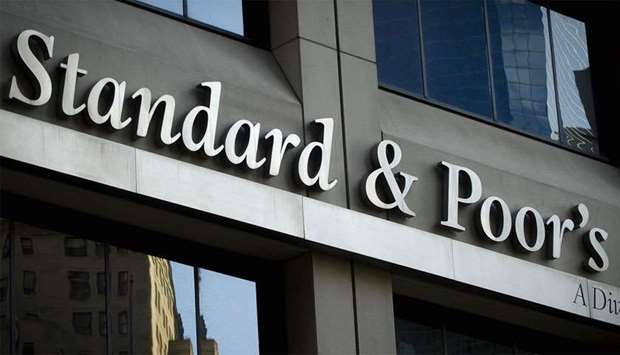* Sukuk issuance drops 27% in the first half of this year
The Gulf Co-operation Council (GCC) sovereigns and government-related entities have more often tapped the conventional markets for bonds and syndications than sukuk this year, according to Standard and Poor's (S&P), a global credit rating agency.
There are several reasons for this, but the most common relates to the complexity of issuing Islamic instruments, particularly sukuk, due to a lack of standardisation, S&P said, highlighting syndication has the potential to become a "permanent vehicle" for Islamic finance in the region.
"Faster execution and larger amounts are the main factors behind the GCC sovereigns' decision to take the conventional funding route in 2020," it said, adding the governments' heightened need for financing stems largely from the oil price slump and the economic fallout of the Covid-19 pandemic.
The S&P report reminded that the last time the Islamic countries saw a similar surge in conventional issuance was in 2015.
While market conditions are slowly improving, issuers with good credit quality are likely to remain on investors' radar, it said, adding the choice of instrument would depend on considerations related to cost, timeliness, complexity, and Shariah preferences.
"In this context, we believe that syndication could become a more permanent vehicle for Islamic finance, complementing the sukuk market," it said.
Compared with classic bank loans, by nature, syndicated deals could attract larger amounts for longer tenors, since a consortium of banks would share the financing risks.
Although syndicated transactions rely on underlying assets and mechanisms to ensure their capacity to generate revenue for the syndicates in a Shariah-compliant manner, they reportedly require less time and documentation than sukuk.
Syndicated deals executed in the first half of 2020 totalled $50.1bn in the core Islamic finance countries, representing about 40% of total transactions in 2019.
By contrast, total sukuk issuance dropped 27% in the first half of this year. The rating agency has observed some improvement recently however, suggesting that the steep drop in sukuk issuance volumes might not be indicative of the market's full-year performance.
S&P said central banks in some core countries have increased the flow of liquidity, asking banks to channel these funds to local corporations to support economic activity.
"Yet we expect banks' risk appetite will lessen in light of the economic stress in the region," it said, adding corporates have so far sought bank financing mainly to meet near-term liquidity needs, and most have been accessing bank financing to take advantage of subsidised rates rather than to support expansion.
"We forecast bank lending will increase by low- to mid-single digits in most core Islamic finance countries in 2020," according to the report.
The lower pricing of bank facilities versus market financing could act as an incentive for corporates. Nevertheless, corporates have cut capital costs and introduced cost-reduction measures, particularly in more exposed sectors such as real estate, aviation, and tourism. Some have also reduced dividends and rolled over short-term bank borrowing to preserve their cash balances.
"Faster execution and larger amounts are the main factors behind the GCC sovereigns' decision to take the conventional funding route in 2020," it said, adding the governments' heightened need for financing stems largely from the oil price slump and the economic fallout of the Covid-19 pandemic.
The S&P report reminded that the last time the Islamic countries saw a similar surge in conventional issuance was in 2015.
While market conditions are slowly improving, issuers with good credit quality are likely to remain on investors' radar, it said, adding the choice of instrument would depend on considerations related to cost, timeliness, complexity, and Shariah preferences.
"In this context, we believe that syndication could become a more permanent vehicle for Islamic finance, complementing the sukuk market," it said.
Compared with classic bank loans, by nature, syndicated deals could attract larger amounts for longer tenors, since a consortium of banks would share the financing risks.
Although syndicated transactions rely on underlying assets and mechanisms to ensure their capacity to generate revenue for the syndicates in a Shariah-compliant manner, they reportedly require less time and documentation than sukuk.
Syndicated deals executed in the first half of 2020 totalled $50.1bn in the core Islamic finance countries, representing about 40% of total transactions in 2019.
By contrast, total sukuk issuance dropped 27% in the first half of this year. The rating agency has observed some improvement recently however, suggesting that the steep drop in sukuk issuance volumes might not be indicative of the market's full-year performance.
S&P said central banks in some core countries have increased the flow of liquidity, asking banks to channel these funds to local corporations to support economic activity.
"Yet we expect banks' risk appetite will lessen in light of the economic stress in the region," it said, adding corporates have so far sought bank financing mainly to meet near-term liquidity needs, and most have been accessing bank financing to take advantage of subsidised rates rather than to support expansion.
"We forecast bank lending will increase by low- to mid-single digits in most core Islamic finance countries in 2020," according to the report.
The lower pricing of bank facilities versus market financing could act as an incentive for corporates. Nevertheless, corporates have cut capital costs and introduced cost-reduction measures, particularly in more exposed sectors such as real estate, aviation, and tourism. Some have also reduced dividends and rolled over short-term bank borrowing to preserve their cash balances.


